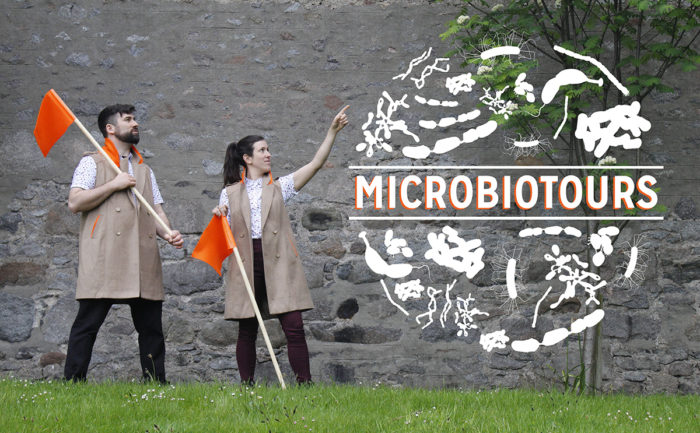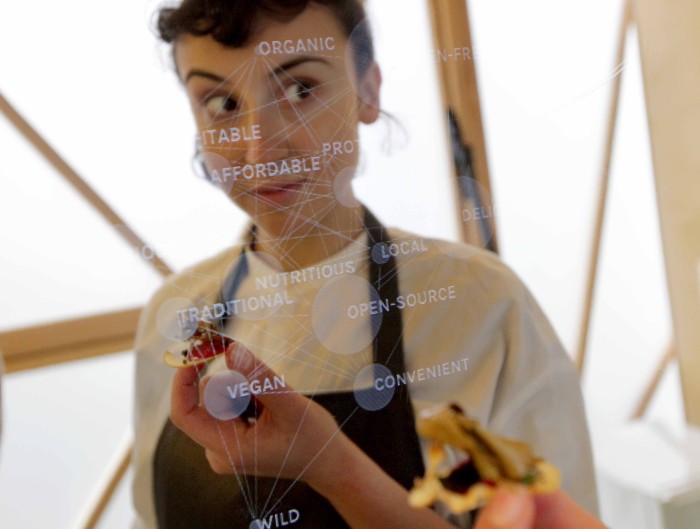
Friday-Sunday (27–29 May), 11:00-16:00 come to FOOD FORECAST:
MICROBIOTOURS & FOOD PHREAKING at the Rowett Institute, Aberdeen, Scotland.
FOOD FORECAST consists of a free walking tour and exhibition by the artist group the Center for Genomic Gastronomy. It has been developed through an Artist in Residence, at the Rowett Institute for Nutrition and Health and supported by the Leverhulme Trust. During their residency at the Rowett over the last year, the Center has focused on emerging research about the human gut microbiota.
1. WALKING TOUR
MICROBIOTOURS: Exploring the Secret Ecologies & Bacterial Subcultures of the Future
Join this free, drop-in, walking tour of the Rowett campus set in the year 2036. Each stop on the tour highlights microbiota research, imagining how it might reshape our daily lives and habits over the next two decades.
Debates over the relationship between human health, food, science and culture have made microbiota research one of the most vibrant and contested areas of inquiry in the life sciences. Microbial interactions are notoriously complex, but there are also great pressures to create profitable products and therapies.
This has lead to cycles of hype, skepticism and self-experimentation. This tour explores future fantasies from Paleo Gut Gardening to a Microbiome Pick-n-Mix, and asks you, the tour-goer, to discuss and consider what kind of microbial future you want and desire.
2. EXHIBITION
Preview copies of a new issue of the publication Food Phreaking will also be on display. Issue 03 focuses on the human manipulation of gut microbiota.
